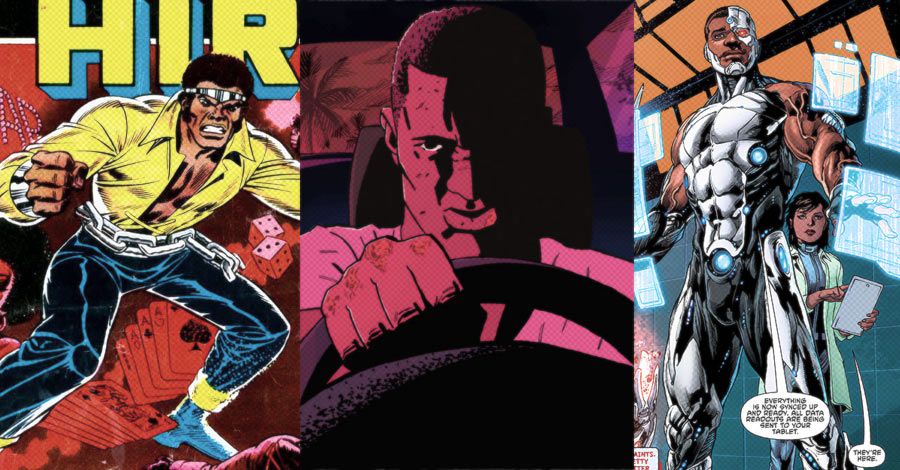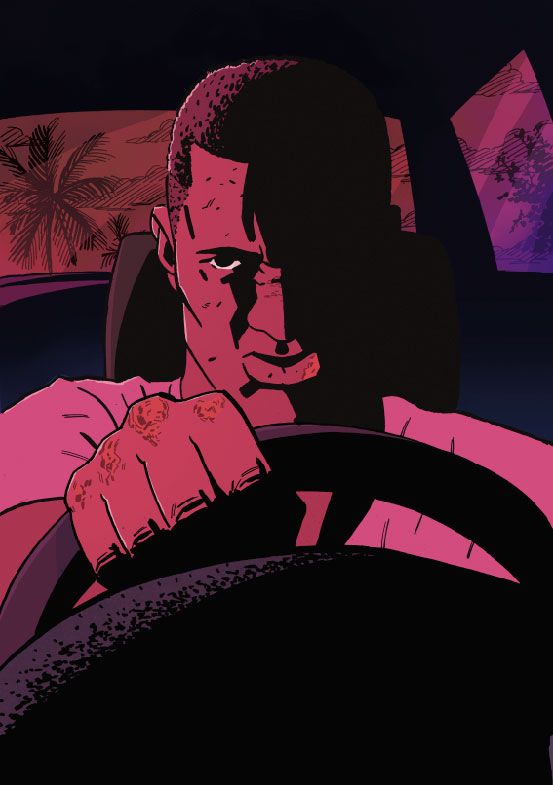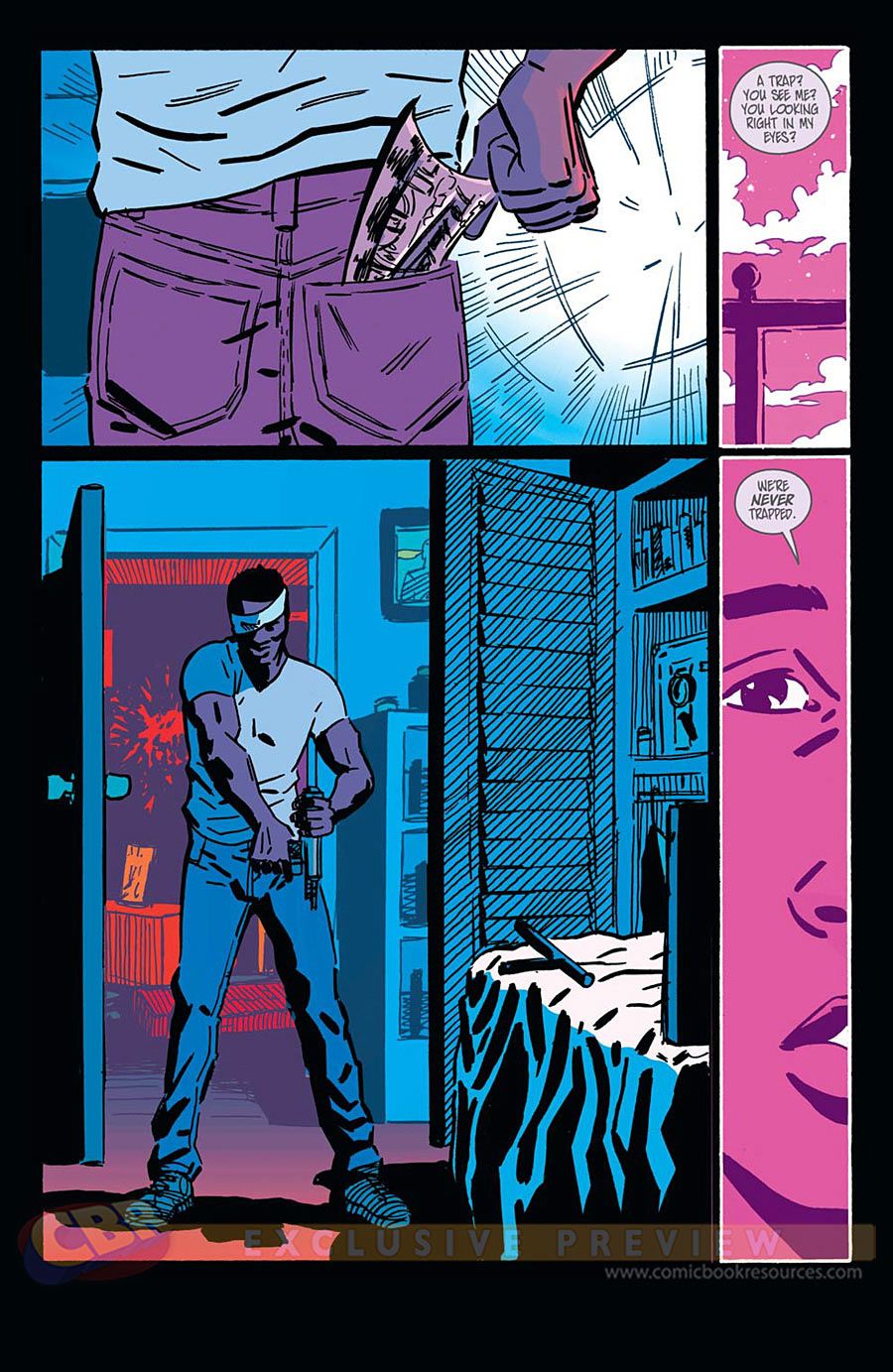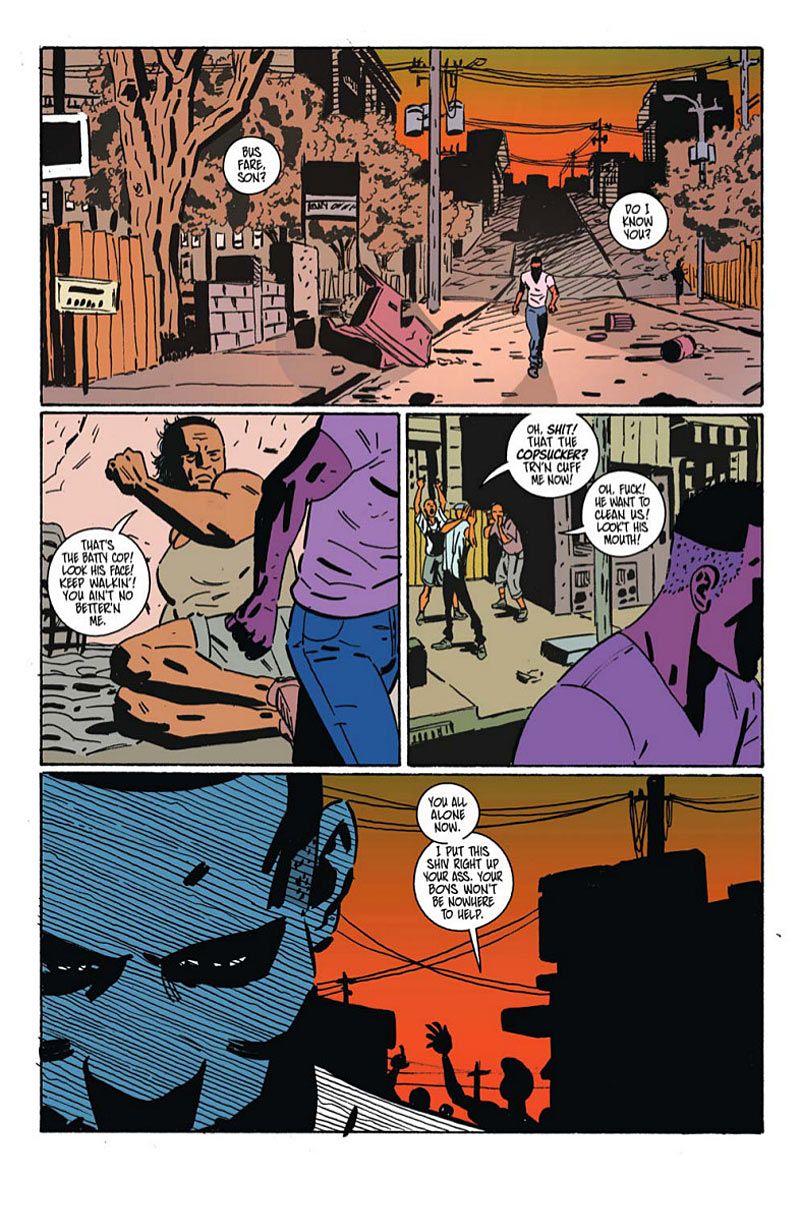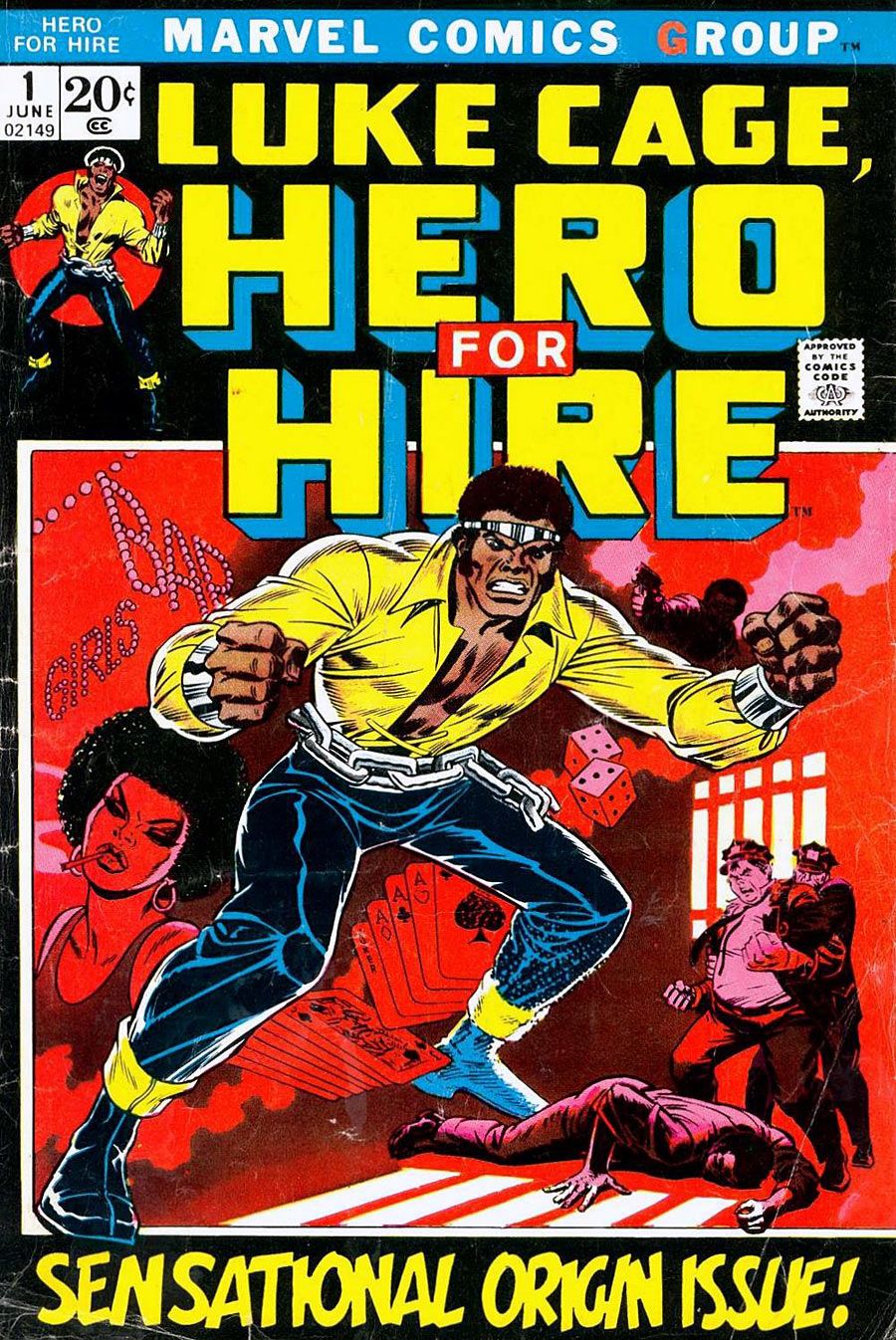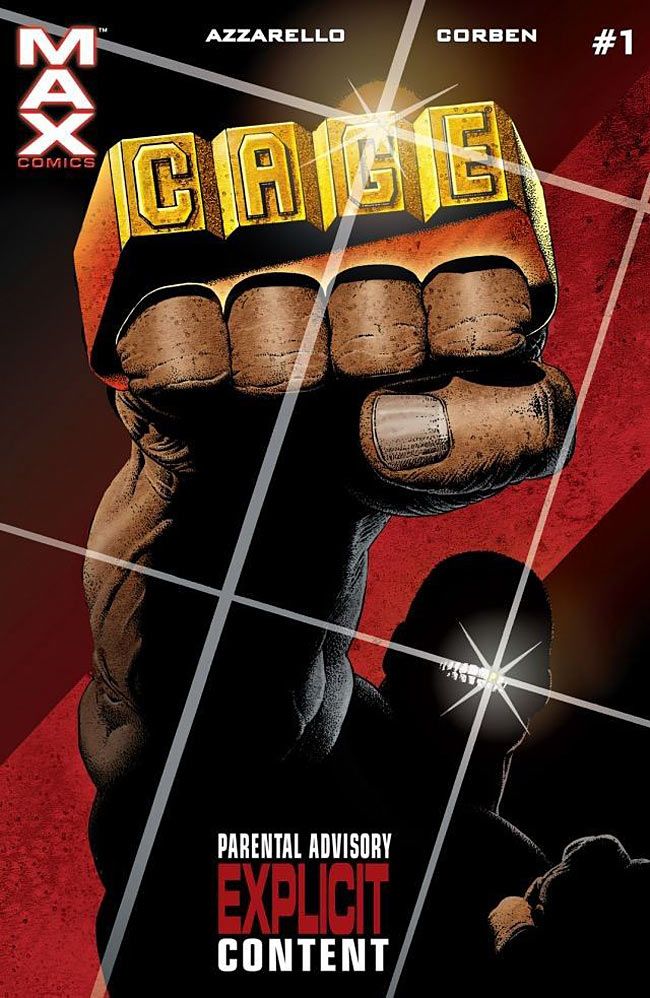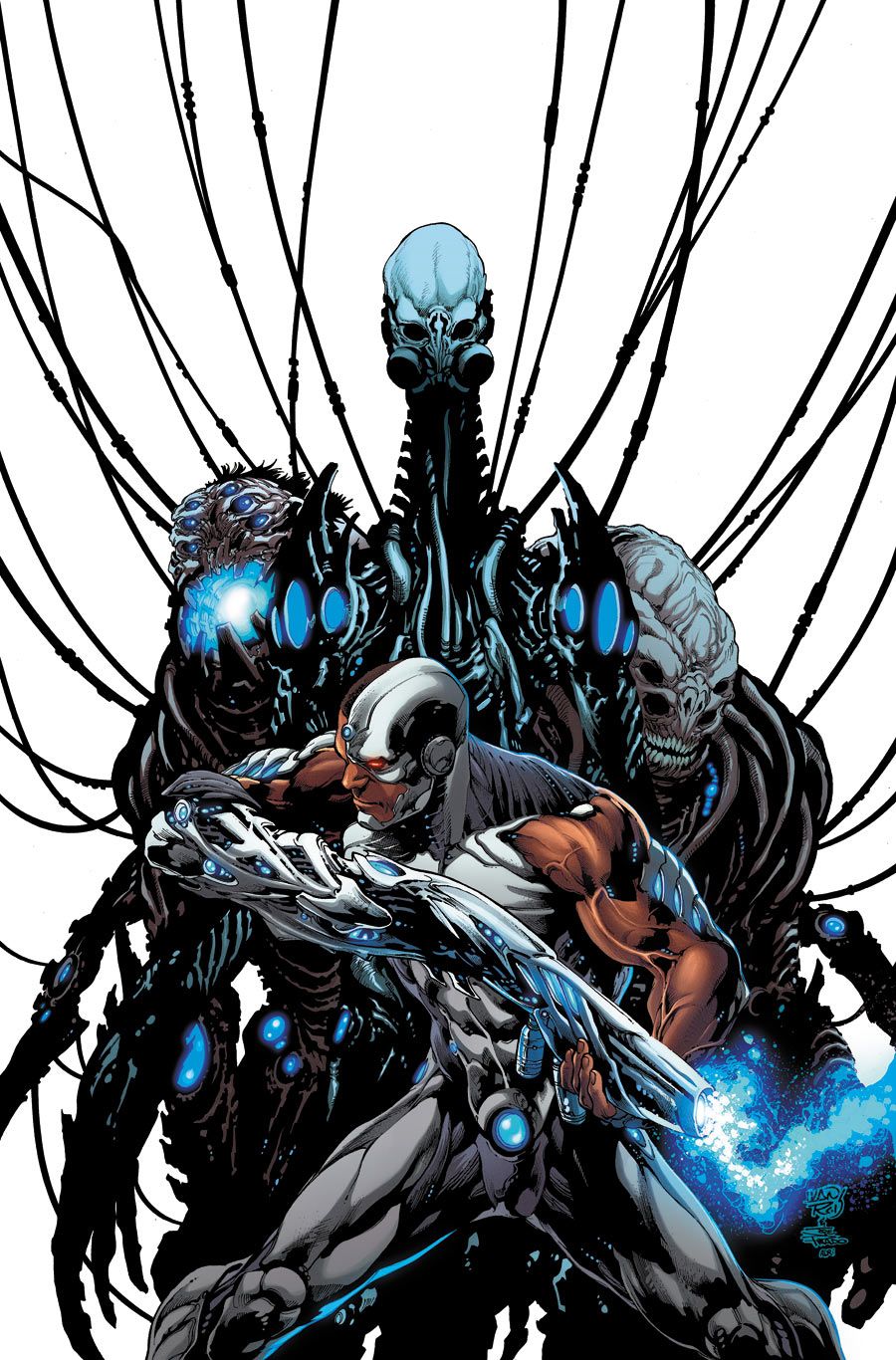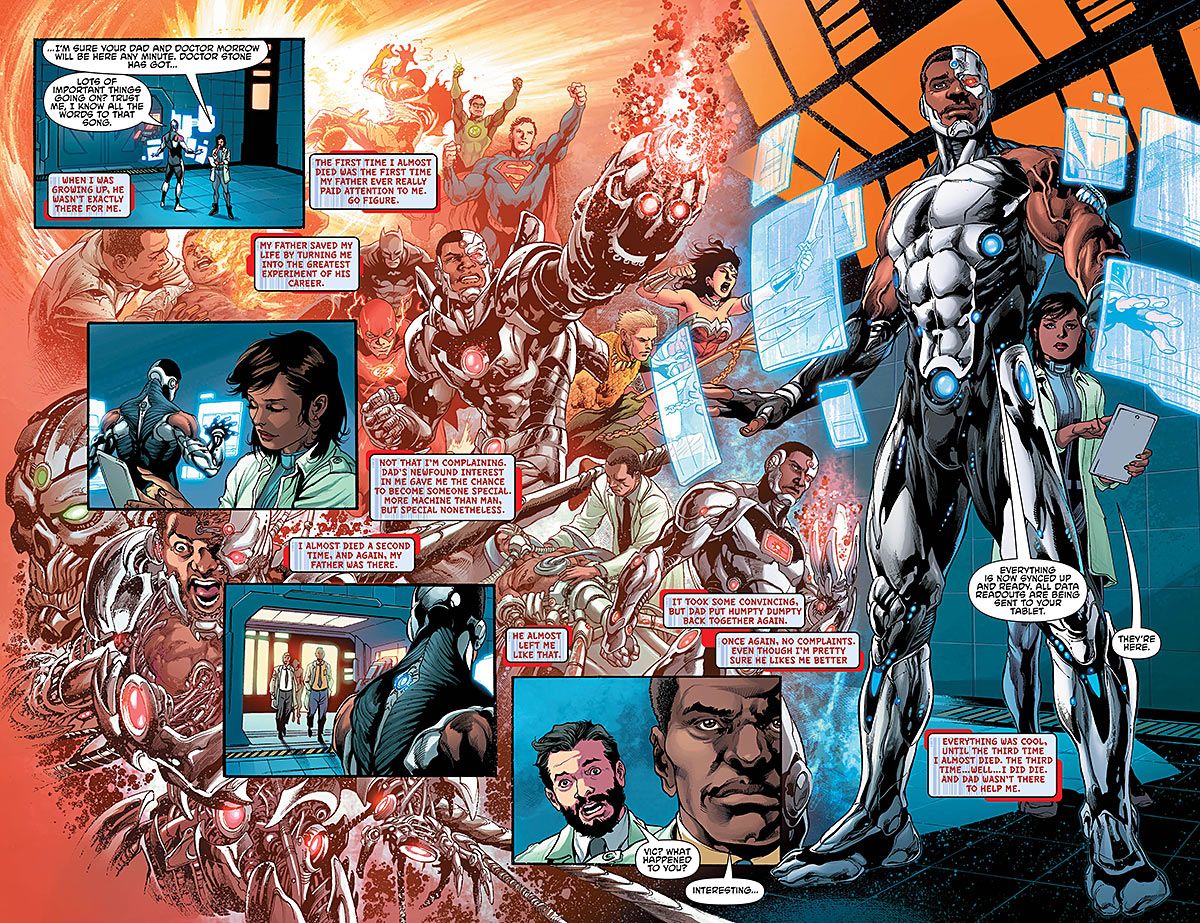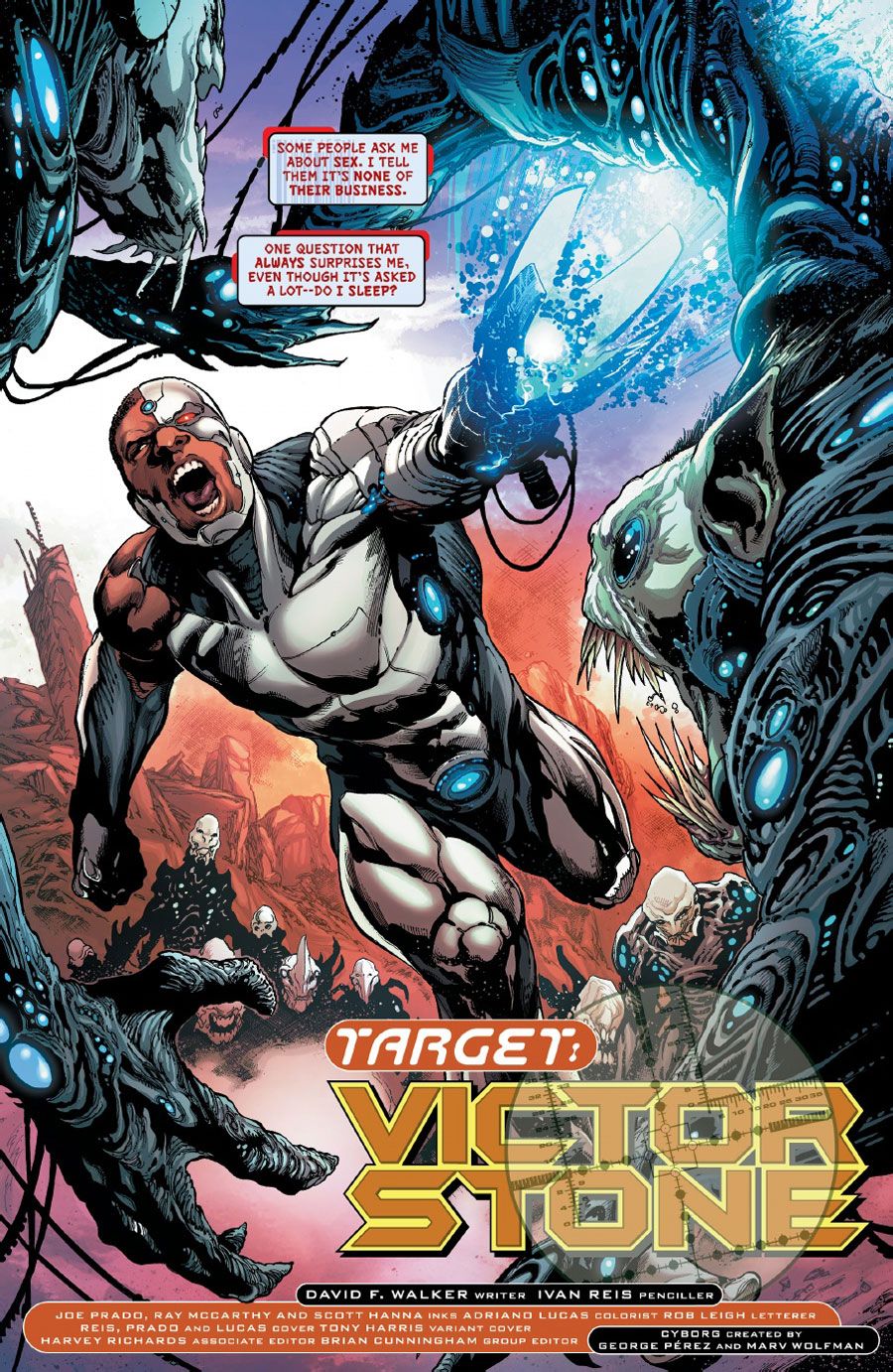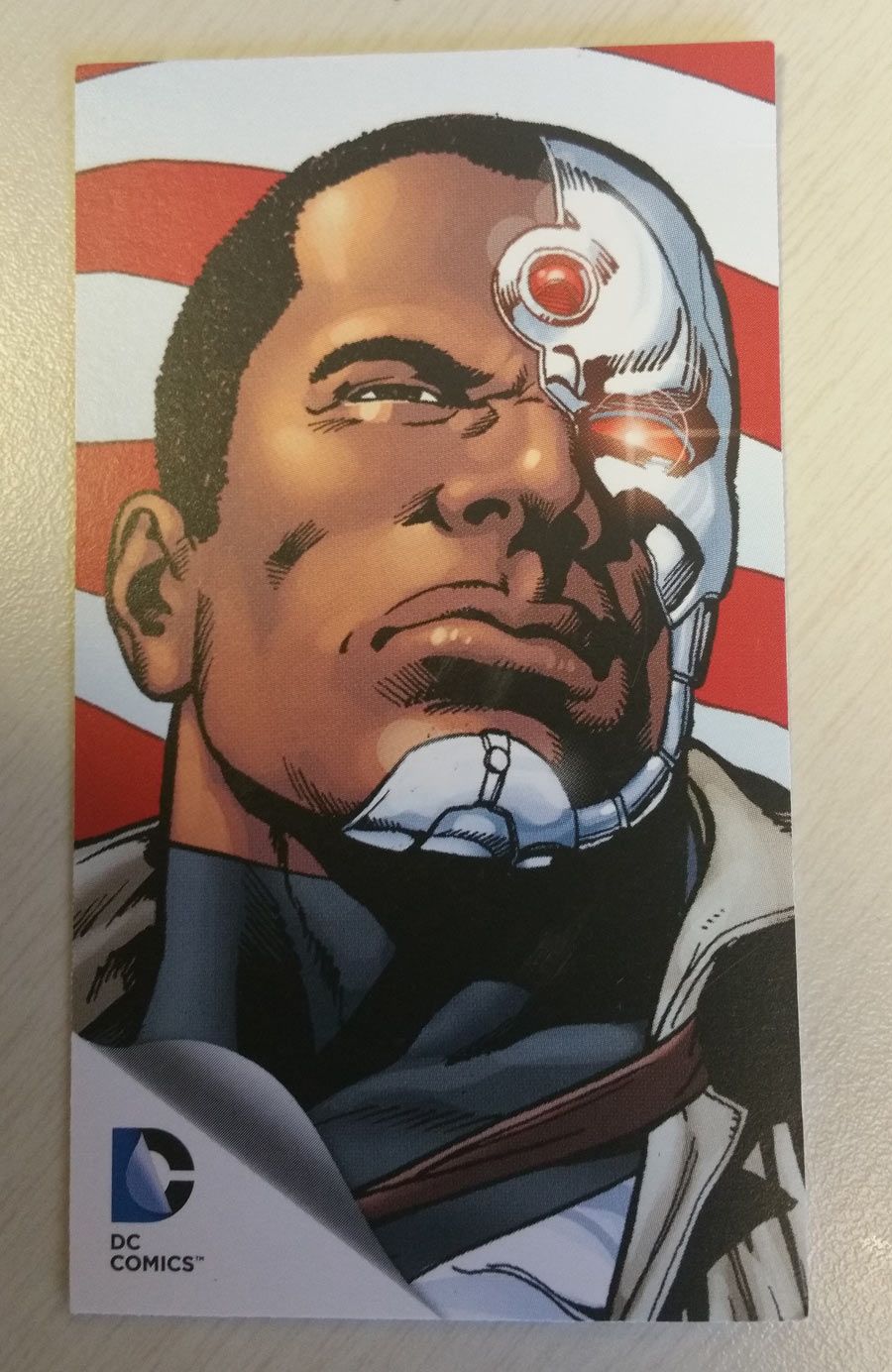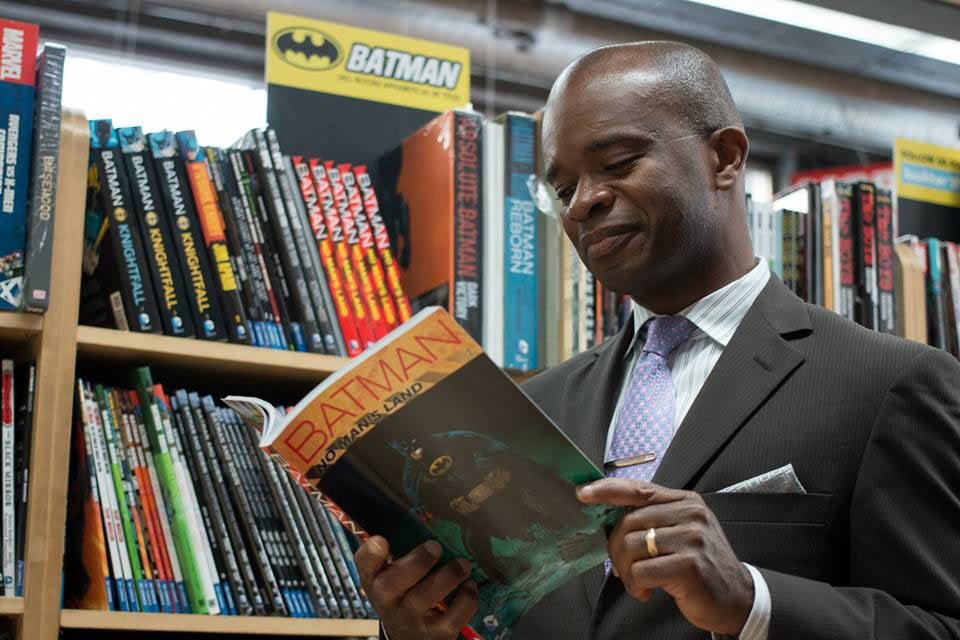In 2015, there is no shortage of public discussion about Black male comic book characters and the translation of some of their stories into television shows and films.
By 2018, Marvel Studios will have presented urban hero Luke Cage and the Black Panther, King of the African nation of Wakanda, to the masses of the world.
In 2020, DC Entertainment and Warner Bros. will release "Cyborg," a film starring the athlete turned cybernetic superhero of the same name.
Above and beyond these cinematic stories, the comic books from Marvel Comics, DC Comics and various other publishers spotlight Black male characters in existing and upcoming comic books ranging from the adventurous to the controversial.
Just as young Black men are being gunned down on a daily basis in the United States, adult Black men navigate through a terrain of social land mines, glass ceilings and competitiveness.
There is another factor, one that means living with fear, rejection and an increased likelihood of death on the Caribbean island of Jamaica.
Homosexuality.
On the stage of that social backdrop is where "Virgil" lives. A graphic novel created and written by the scribe behind the critically-acclaimed DC Comics series "Midnighter," Steve Orlando, illustrated by J.D. Faith, colored by Chris Beckett and designed/lettered by Thomas Mauer, "Virgil" is a Kickstarter success story set for publication by Image Comics on September 9.
INTERVIEW: Steve Orlando on Fighting Back, Speaking Up & Coming Out in "Virgil"
Virgil is a Jamaican cop living the double life of a police officer who talks up his sexual exploits with women and engages in sex with female prostitutes, while secretly in a relationship with his male partner and love of his life, Ervan.
When his family is killed in a nighttime attack and Ervan is kidnapped, Virgil goes on a vengeful quest to find his boyfriend and kill the people who murdered his loved ones.
Virgil's secret is revealed to the public in a newspaper article, forcing him to operate in the shadows to avoid the threat of attack and death from his own people, the ones he fought to serve and protect every day.
He is ostracized from the police force, made vulnerable by the lack of protection he enjoyed as an officer of the law and forced to deal with the homophobic society of his home without any assistance or allies whatsoever.
Using the revenge story model to flip the Black male hero archetype, "Virgil" writer Steve Orlando and I spoke on the subject of how "Virgil" contributes to the discussion of masculinity in popular media.
"Virgil"tackles head on the tension between traditional masculinity and homosexuality, which threatens the rigid stipulations of traditional masculinity by offering a more complex look at what 'makes a man.'
Virgil himself calls into questions those tropes as a confident, bold, assertive man who, as a bottom, the receptive sexual partner, also represents an inversion of traditional masculinity.
Any structure, masculinity included, built upon such dogmatic, extensive tropes is easily deflated and thus, like anything wounded, the reaction from normative masculine culture can be defensive and aggressive.
With "Virgil"we bring a character that stands in the face of those rules and is unafraid to meet that aggression head on.
As a Jamaican-American who grew up in Brooklyn within various West Indian communities, I'm well aware of the homophobia among many Jamaicans and the ubiquity of the term "batty boy" in conversations and music. After watching the Vice News documentary "Young and Gay: Jamaica's Gully Queens," I became aware that LGBT persons live in a constant state of danger in Jamaica.
For those reasons among others, "Virgil" was a story I felt compelled to read. I found it to be an intense, engaging story that spoke to the larger narrative of Black men at war with the expectations and prejudices of their environments.
The larger narrative of a Black man at odds with society runs through the evolving story of Luke Cage, Marvel Comics' Black male hero from the 1970s.
Luke Cage was imprisoned for a crime he did not commit and through experiments conducted on him in prison, was transformed into a bulletproof Black man.
While the character's complexion, wardrobe and manner of speech has changed over the years, as he has transitioned from his Blaxploitation film genre-inspired roots to a leader of the Avengers, a husband within an interracial relationship and a father, Luke Cage is an icon that invites discussion.
A muscular Black man of stature who engages in physical combat on a regular basis, one born in the streets with past known criminal associates, Luke Cage has been portrayed as uneducated and promiscuous by writers of stature. He has been illustrated with a torn shirt showing his dark chest, rippling with muscle and emotional energy by illustrators of stature.
Luke Cage has represented the kind of mythical superhuman power attributed to Black men by bigots throughout the 19th and 20th Centuries and some police officers of the present day.
Jonathan W. Gray, an Associate Professor of English at John Jay College - CUNY, researches comic books and graphic novels.
Gray spoke with me about the direct correlation between the Attica Prison Riot of 1971 and the publication of Marvel Comics' "Luke Cage: Hero For Hire" one year later. Luke Cage is created from the kind of environment embedded in, at the time, the recent American consciousness as the battleground for Black prisoners against an authority structure.
"Black masculinity, as presented in pop culture, has always been about making White people feel comfortable with Black masculinity," said Gray, author of the upcoming book on characters of color in comics "Illustrating The Race" from Columbia University Press.
With the character slated to appear in this year's "Marvel's Jessica Jones" live-action series from Netflix and Marvel Studios before appearing in his own show next year, "Luke Cage" is being set up to show the character's growth and iconic potency in a way that will hopefully be viewed and loved by the masses.
The "Luke Cage" TV show will certainly help gauge the public's interest in Black male superheroes as the solo star of a cinematic story and help pave the way for the "Cyborg" movie from DC Entertainment.
"Cyborg" is the story of Victor Stone, a teenage athlete who is saved from death by his father, scientist Silas Stone and turned into a cybernetic organism with advanced superhuman abilities.
The character of Victor Stone shows the transition of a Black male from his late teenage years to early adulthood, maintaining identity and sense of self within the daily existence of being partially mechanical and dealing with high expectations from the general populace because of his fame as a member of the Justice League of America.
David Walker is the writer of the monthly "Cyborg" comic book by DC Comics, the recent "Shaft" miniseries by Dynamite Entertainment being collected this October, and is an award-winning journalist, filmmaker and educator.
There is a rather limited spectrum through which black masculinity is presented and viewed in comics, as well as pop culture. The result is an oversimplified look at black masculinity that all too often seeks to emasculate it, make it subservient, or turn it into something threatening. This is what I grew up with and what I wanted to challenge as I found my way into the industry. My goal with "Cyborg" was to tackle these three dominant constructs of what black men are supposed to be and show something more complex and human.
Vic Stone is the perfect character to explore the humanity of the black male, because as someone who is part machine, his humanity is already being called into question.
"Cyborg" #1 by Walker, penciller Ivan Reis, inker Joe Prado and colorist Adriano Lucas was one of the top 40 selling comic books of July.
Cyborg now appears as one of the characters spotlighted on the back of business cards for the employees of DC Comics.
Marvel Promises All-New, All-Different "Black Panther" Series
The publicity push and support DC Comics is showing for "Cyborg," coupled with the announcement by Marvel Comics' Editor-in-chief Axel Alonso of the Black Panther's return to the monthly comic book scene, speaks to the executive-level belief in the importance and marketability of Black men as heroes.
The two publishers are now part of a discussion already in progress, by many people in the comic book industry and educational circles. By people like Dr. Jonathan Gayles, Professor of African-American Studies at Georgia State University with his documentary "White Scripts and Black Supermen: Black Masculinities in Comic Books," William H. Foster III, author and Professor of English at Naugatuck Valley Community College in Waterbury, Connecticut, John Jennings, Associate Professor of Visual Studies at SUNY Buffalo and Alex Simmons, author/educator and creator of the graphic novel series "Blackjack."
Writers like David Walker will continue the discussion alongside Al Ewing, Nick Spencer and more authors to be announced this year by at least one of the two major comic book publishers.
Writer/artists like Ronald Wimberly of Vertigo's "Prince of Cats," who has two upcoming series from Image Comics in development, will continue the discussion alongside Grey Williamson, creator of the graphic novel "Val-Mar: Gifted and Cursed."
There's no one archetype to encapsulate the Black male hero, or any hero of a particular ethnic background or gender and no one creator who can or should carry the responsibility of telling that hero's story.
We can look forward to more of them in the future and the examination of the Black male hero will continue for a long time.
Just ask the people at Valiant Entertainment.
Word is their Black male mystical hero, Shadowman, is about to make a comeback.
Joseph Phillip Illidge is a public speaker on the subjects of race, comics and the corporate politics of diversity. In addition to his coverage by the BBC and Publishers Weekly, Joseph has been a speaker at John Jay College of Criminal Justice, Digital Book World's forum, Digitize Your Career: Marketing and Editing 2.0, Skidmore College, Purdue University, on the panel "Diversity in Comics: Race, Ethnicity, Gender and Sexual Orientation in American Comic Books" and at the Soho Gallery for Digital Art in New York City.
Joseph is the Head Writer for Verge Entertainment, a production company co-founded with Shawn Martinbrough, artist for the graphic novel series "Thief of Thieves" by "The Walking Dead" creator Robert Kirkman and video game developer Milo Stone. Verge has developed an extensive library of intellectual properties for live-action and animated television and film, video games, graphic novels and web-based entertainment.
His graphic novel project, "The Ren," about the romance between a young musician from the South and a Harlem-born dancer in 1925, set against the backdrop of a crime war, will be published by First Second Books, a division of Macmillan.
Joseph's newest comic book project is the upcoming Scout Comics miniseries "Solarman," a revamp of a teenage superhero originally written by Stan Lee.

